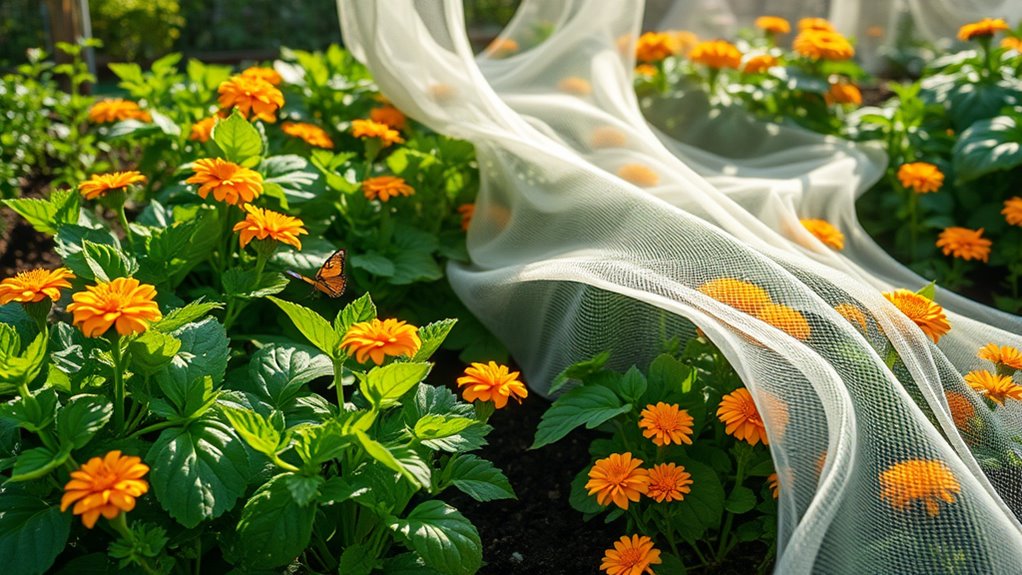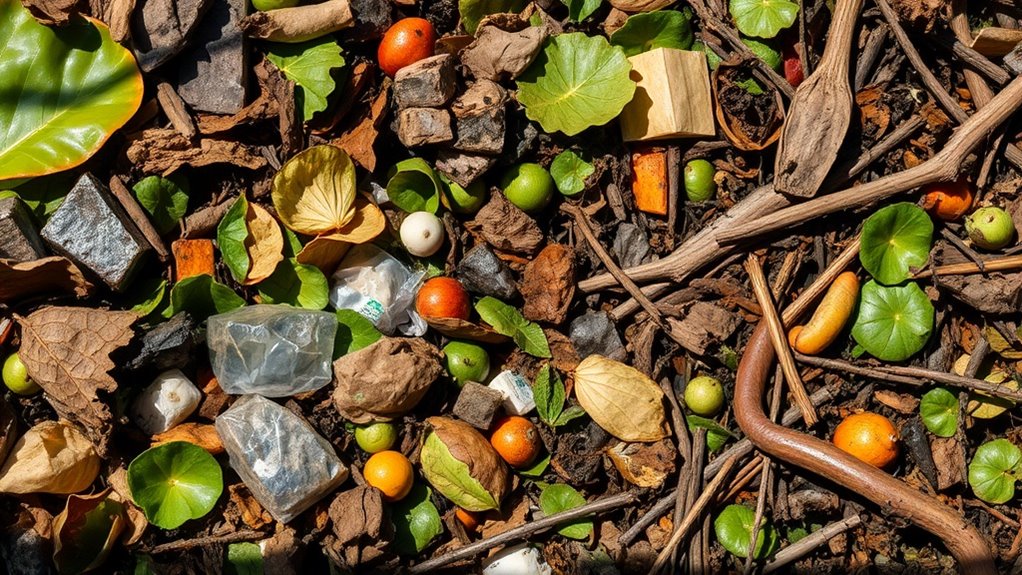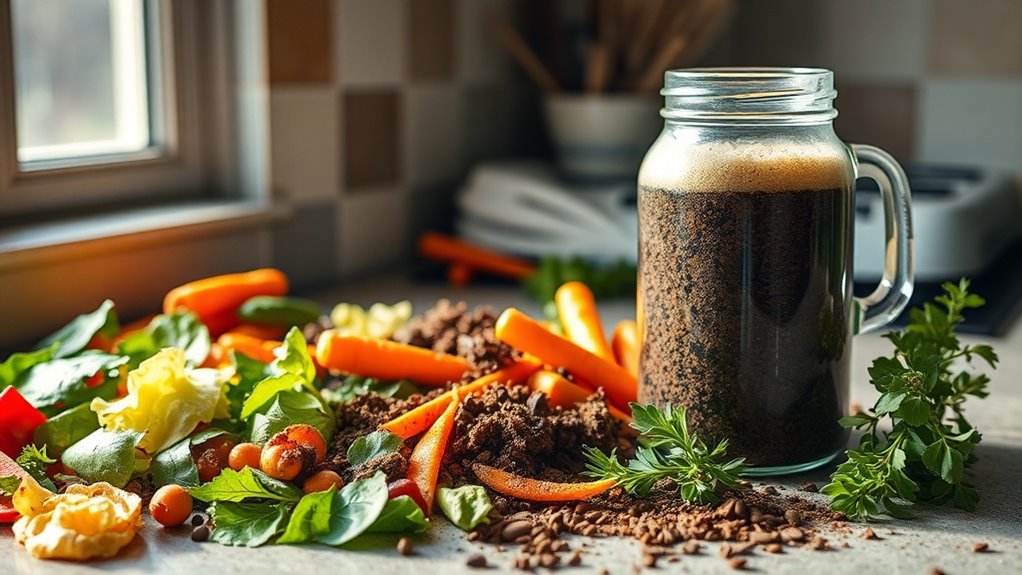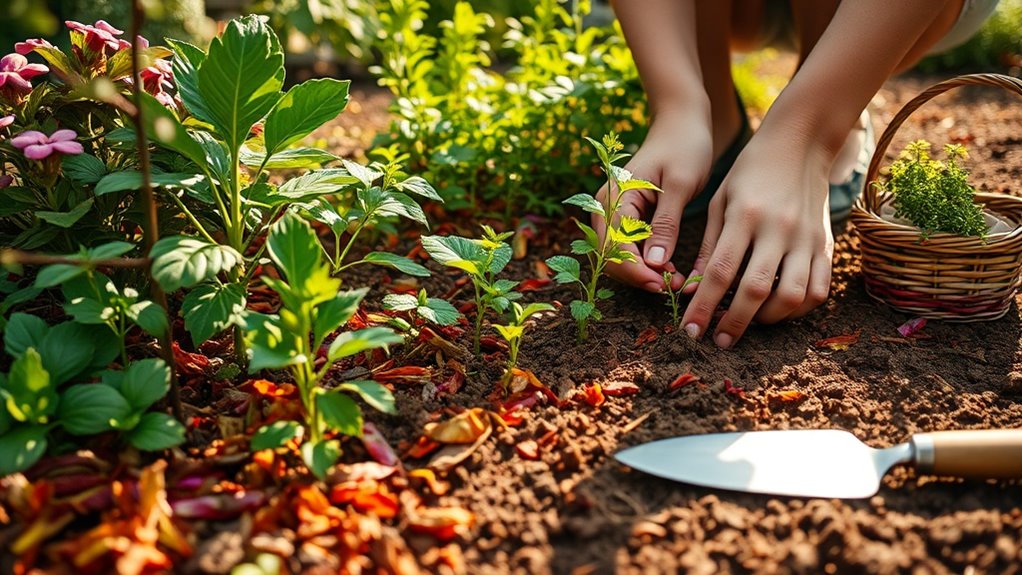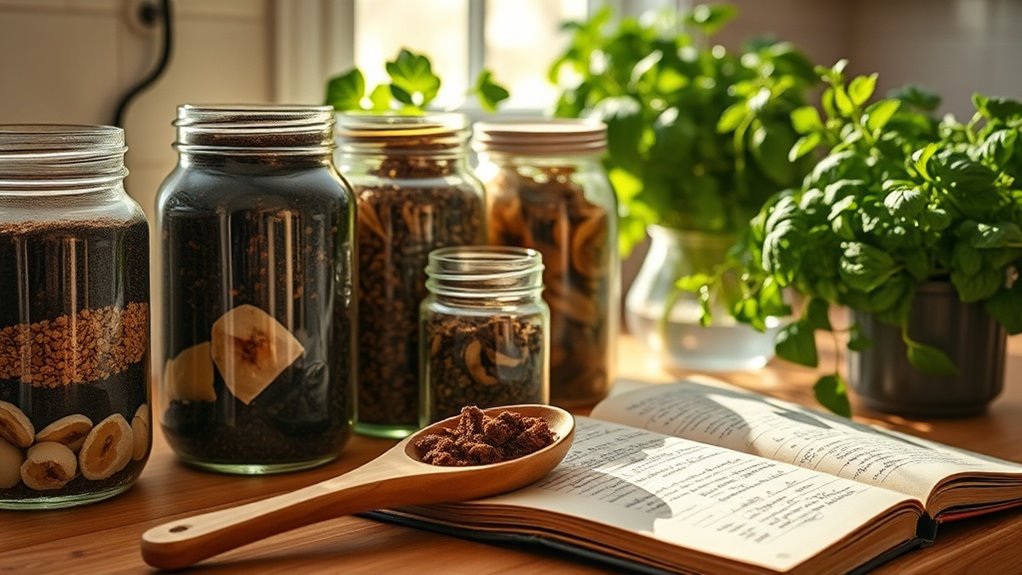This Natural Trick Keeps Bugs Off Your Veggies All Season
Imagine walking through your garden, vibrant veggies flourishing under the sun, untouched by pesky bugs. You might wonder how to keep those unwanted visitors at bay without relying on harsh chemicals. Fortunately, there’s a natural trick that combines companion planting and essential oils to create a thriving, pest-free environment. Discover how simple herbs and DIY sprays can transform your garden into a sanctuary for both plants and beneficial insects.
Key Takeaways
- Utilize natural repellents like herbs, such as basil and mint, to create a barrier against garden pests.
- Apply essential oils diluted with water as a spray to deter bugs while promoting beneficial insects.
- Implement companion planting strategies, pairing crops like tomatoes with basil to repel pests and enhance growth.
- Regularly monitor your garden for early signs of infestations to address issues before they escalate.
- Maintain diversity in plant selection to foster a balanced ecosystem and reduce reliance on chemical pesticides.
Understanding the Importance of Pest Control in Gardening
Why is pest control crucial for your garden’s success?
Effective pest management ensures your plants thrive by preventing damage from unwanted insects. Implementing natural veggie protection methods not only safeguards your crops but also promotes a healthier ecosystem. By using organic solutions like companion planting or neem oil, you can deter pests while nurturing beneficial insects. Additionally, using natural sprays can further enhance your pest control efforts in maintaining a balanced garden. Regularly monitoring your garden helps you catch infestations early, ensuring your veggies grow strong and delicious.
Common Garden Pests and Their Impact
Have you ever wondered how garden pests can affect your plants? These unwelcome guests can cause significant damage, stunting growth or even killing your veggies. Understanding the common pests and their impacts helps you stay proactive. Additionally, employing natural methods to prevent aphid infestations can promote healthier plant growth and reduce reliance on chemical pesticides.
| Pest | Impact | Control Measures |
|---|---|---|
| Aphids | Stunt growth, spread disease | Introduce ladybugs |
| Tomato Hornworm | Devour leaves, weaken plants | Handpick or use traps |
| Cabbage Worms | Chew holes in leaves | Use row covers |
Natural Repellents: Herbs and Essential Oils
When it comes to keeping pests away from your veggies, herbs and essential oils are your best friends.
You can easily incorporate effective herbs like basil and mint into your garden, while essential oils like peppermint and lavender can be mixed for a powerful repellent spray. Additionally, using a DIY bug spray made from natural ingredients can enhance your pest control efforts and ensure the safety of your plants.
Let’s explore how these natural options can protect your plants without harsh chemicals.
Effective Herb Choices
Herbs and essential oils can be your garden’s best allies when it comes to repelling unwanted pests.
By incorporating these effective herbs, you can keep your veggies safe and thriving.
Here are four top choices:
- Basil – Its strong scent deters flies and mosquitoes.
- Mint – The aroma repels ants and aphids, plus it smells great!
- Rosemary – This herb keeps cabbage moths and beetles at bay.
- Thyme – Its fragrance is a natural deterrent for various pests.
Planting these herbs nearby can create a natural barrier, ensuring your garden stays healthy all season long.
Essential Oil Applications
How can you harness the power of essential oils to protect your garden?
Start by mixing a few drops of oils like peppermint, lavender, or tea tree with water in a spray bottle. Shake well and spray your plants regularly.
These oils not only repel pests but also promote a healthy environment for beneficial insects.
You can also soak cotton balls in essential oils and place them around your garden to deter bugs.
Remember to reapply after rainfall or heavy watering.
With these natural repellents, you’ll keep your veggies thriving while minimizing the need for chemical pesticides. Happy gardening!
Companion Planting: Allies in the Garden
Have you ever wondered how certain plants can thrive together while others struggle?
Companion planting is the answer!
By pairing plants wisely, you can enhance growth and deter pests naturally.
Here are four pairings to consider:
- Tomatoes and Basil: Basil enhances tomato flavor and repels pests.
- Carrots and Onions: Onions deter carrot flies while carrots mask onion scent.
- Marigolds and Veggies: Marigolds repel nematodes and other harmful insects.
- Cucumbers and Nasturtiums: Nasturtiums deter aphids and attract beneficial insects.
Incorporate these combinations to create a thriving, pest-resistant garden! Additionally, some companion plants can improve overall yield by providing essential nutrients to their partners.
DIY Insecticidal Soaps and Sprays
Creating your own insecticidal soaps and sprays is a simple and effective way to protect your veggies from pests. You’ll need just a few common ingredients, and applying them correctly can make a big difference in keeping your garden healthy. Additionally, using natural pest spray can provide prolonged protection against a variety of insects throughout the summer. Let’s explore how to whip up these natural solutions and see how they can tackle those pesky invaders.
Ingredients for Insecticidal Soap
Insecticidal soap is a fantastic, eco-friendly solution for tackling pests on your vegetables.
You can easily make it at home with just a few simple ingredients.
Here’s what you’ll need:
- Water – Use distilled or tap water, depending on availability.
- Liquid Soap – A mild dish soap or pure castile soap works best.
- Vegetable Oil – This helps the solution stick to pests.
- Optional Additives – You can include essential oils like neem or peppermint for extra pest-fighting power.
Mix these ingredients, and you’re ready to protect your garden naturally!
Application Techniques Explained
How can you effectively apply your homemade insecticidal soap to protect your vegetables?
Start by choosing a calm, dry day to prevent the soap from evaporating too quickly.
Fill a spray bottle with your mixture and test it on a small plant area first.
If there’s no adverse reaction after 24 hours, you’re good to go!
Spray the affected areas thoroughly, targeting the undersides of leaves where pests often hide.
Reapply every week or after rain.
Consistency is key, so keep an eye on your plants and adjust your application frequency as needed for the best results.
Happy gardening!
Effectiveness Against Common Pests
Ever wondered just how effective homemade insecticidal soaps and sprays can be against common garden pests?
These natural solutions can really pack a punch!
Here’s what you need to know:
- Aphids: Kills them on contact by suffocating their bodies.
- Spider Mites: Disrupts their feeding and breeding cycles effectively.
- Whiteflies: Targets their soft bodies, reducing infestations quickly.
- Mealybugs: Destroys their protective wax coating, leading to dehydration.
With regular application, you’ll notice significant reductions in pest populations, keeping your veggies healthy and thriving.
Give it a try, and watch your garden flourish!
Maintaining a Healthy Garden Ecosystem
A healthy garden ecosystem thrives on balance and diversity, making it essential to nurture beneficial insects while managing pests.
Start by planting a variety of flowers and herbs to attract pollinators and natural pest controllers like ladybugs and lacewings.
Use companion planting to create a symbiotic environment, where plants support each other’s growth and repel pests.
Regularly monitor your plants for signs of pests, and intervene with natural remedies when necessary.
Avoid harmful chemicals that disrupt this delicate balance. Additionally, implementing eco-friendly pest control methods can further enhance your garden’s health and sustainability.

